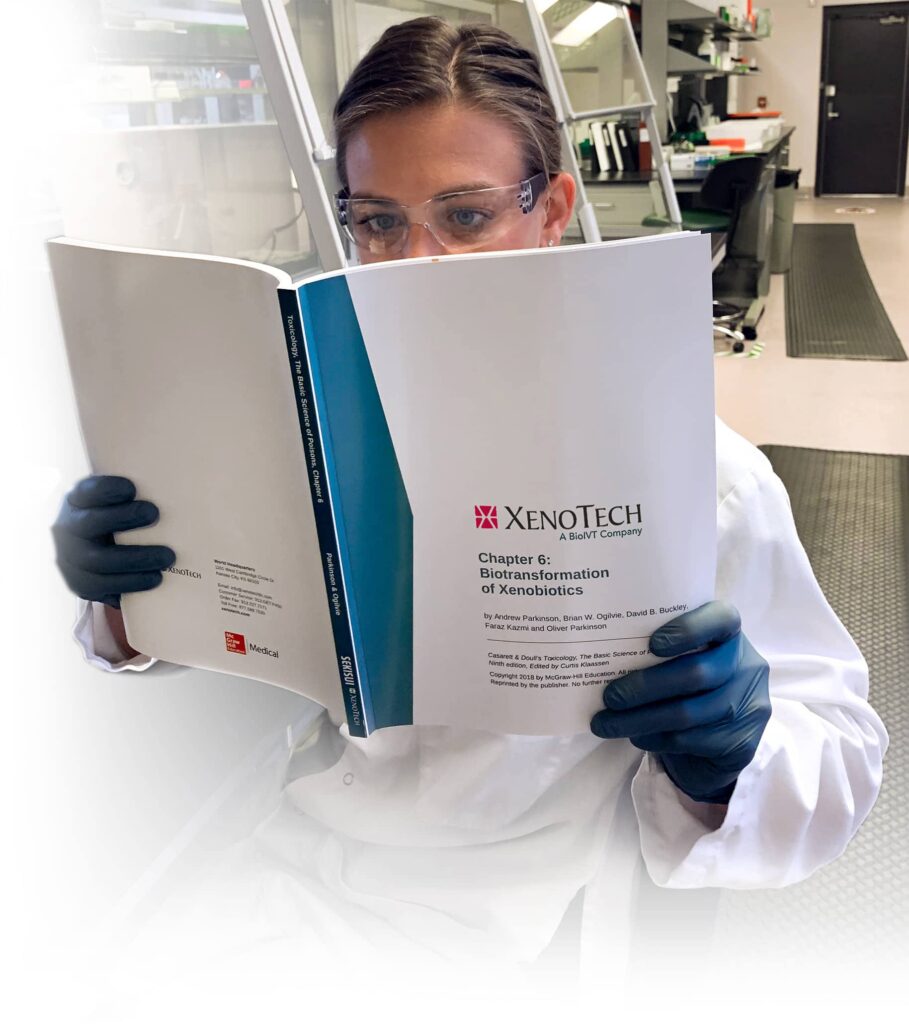
Suicide by Binding: Putting Time-Dependent Inhibition of CYP Enzymes into Perspective
Presenter: Brian Ogilvie, Ph.D., XenoTech Vice President of Scientific Consulting
with special guest for Q&A, Lois Haupt, XenoTech Principal Scientist in Program Oversight
Many drug candidates are screened out in discovery due to a time-dependent cytochrome P450 (CYP) enzyme inhibition signal in an in vitro IC50 shift assay because time-dependent inhibition (TDI) is often of greater clinical concern than direct inhibition. Depending on the drug target or intended indications, this approach may be akin to throwing the baby out with the bathwater.
Numerous successful drugs cause TDI of CYP enzymes such as fluoxetine, gemfibrozil, esomeprazole, clopidogrel, etc. TDI may be reversible if it is caused by a metabolite that is simply a more potent inhibitor than the parent is, or irreversible. Irreversible time-dependent inhibition may be the result of mechanism-based inactivation, sometimes known as “suicide inhibition.” There are also several types of apparently irreversible inhibition– an experimental approach that distinguishes these types from true mechanism-based inhibition can be important. Even in cases where the TDI is due to mechanism-based inhibition, the extent of inactivation may not be sufficient to cause clinically relevant drug-drug interactions (DDIs), or if they do, the risk can be managed through labelling or dosage adjustments.
Key concepts discussed in the webinar:
- In vitro approaches to evaluate time-dependent inhibition, including determination of IC50 shifts, KI and kinact values
- Methods to distinguish reversible from irreversible TDI
- Approaches to predicting clinical DDIs resulting from reversible or irreversible TDI
- Case examples
About the presenters
Dr. Brian Ogilvie currently serves as Vice President of Scientific Consulting at XenoTech. Brian joined XenoTech in 1997, and obtained his Ph.D. in toxicology from the University of Kansas Medical Center and B.A. in molecular biology from William Jewell College. Brian is an author or coauthor on over 50 scientific posters, peer-reviewed publications and book chapters on the topics of drug metabolism, transport and drug-drug interactions, and has represented the company as an invited speaker at various drug metabolism conferences. As VP of the Consulting Department, he leads drug-drug interaction-related R&D projects, authors various publications, writes expert opinions for consulting clients, and oversees all consultancy services.Lois Haupt will join Dr. Ogilvie for the live Q&A following the presentation. Lois celebrates her 20th year with XenoTech this summer, beginning as a Scientist I in the Enzyme Inhibition service group and working her way up to Principal Scientist in Program Oversight. Her expertise spans drug metabolism research and regulatory compliance, and her specific area of expertise encompasses CYP and UGT inhibition assays along with data interpretation and follow-up to these studies.
